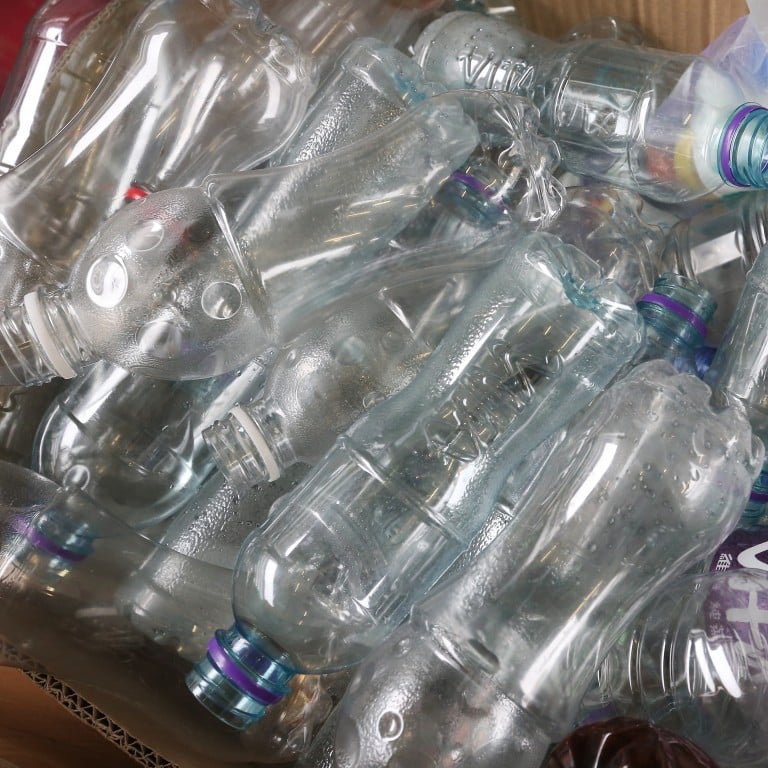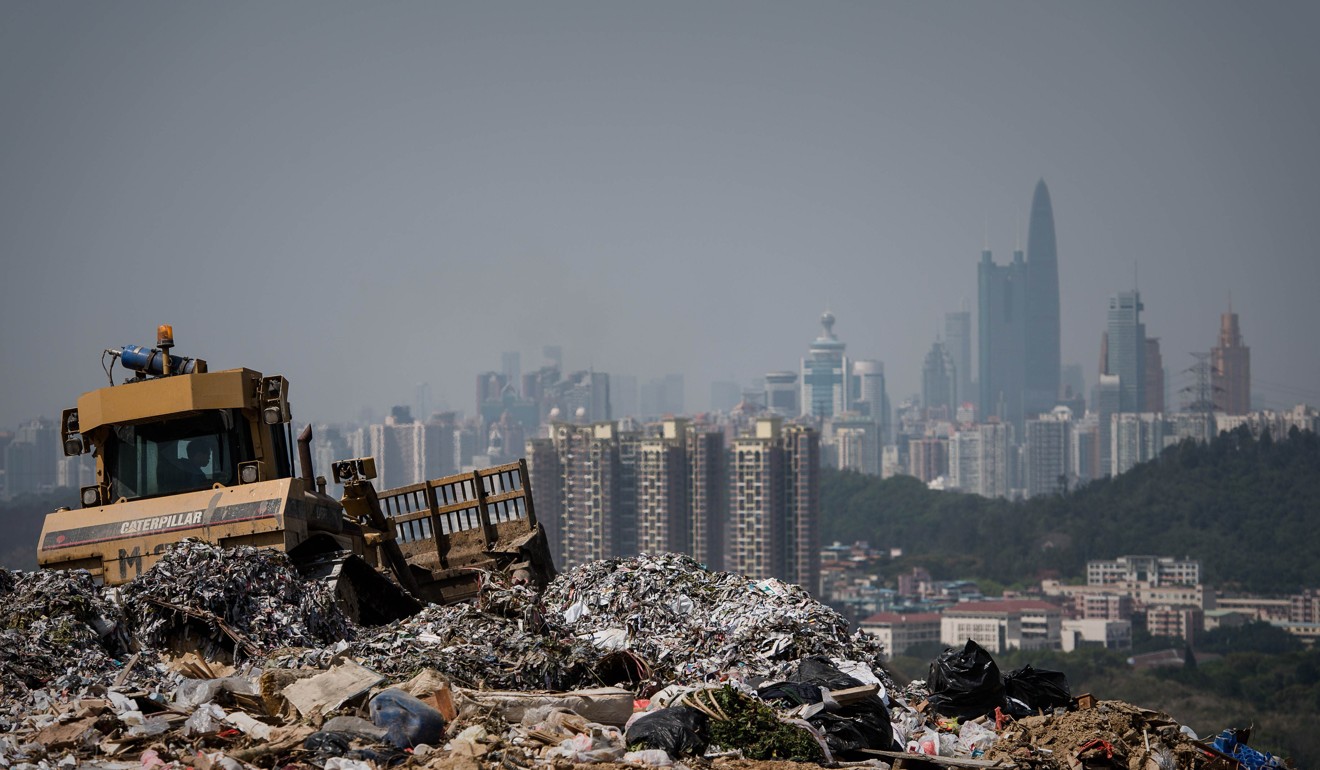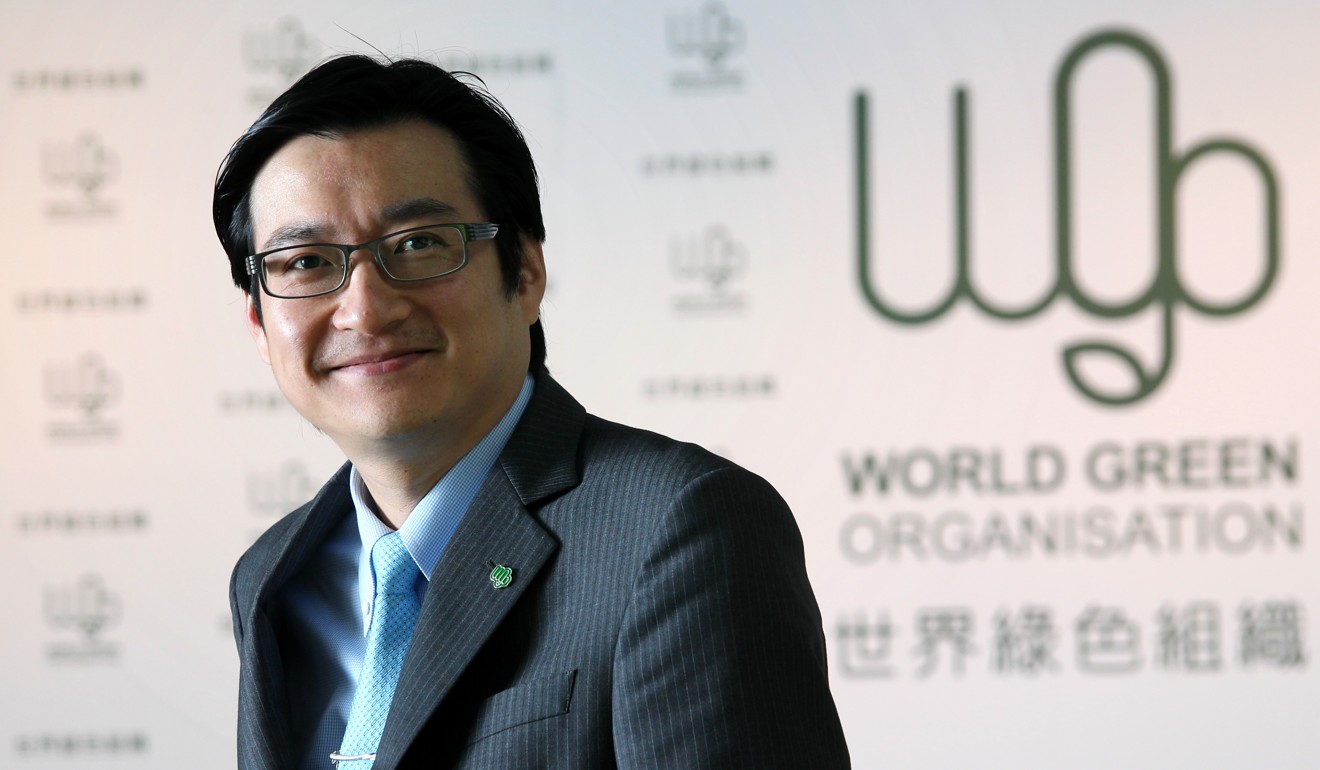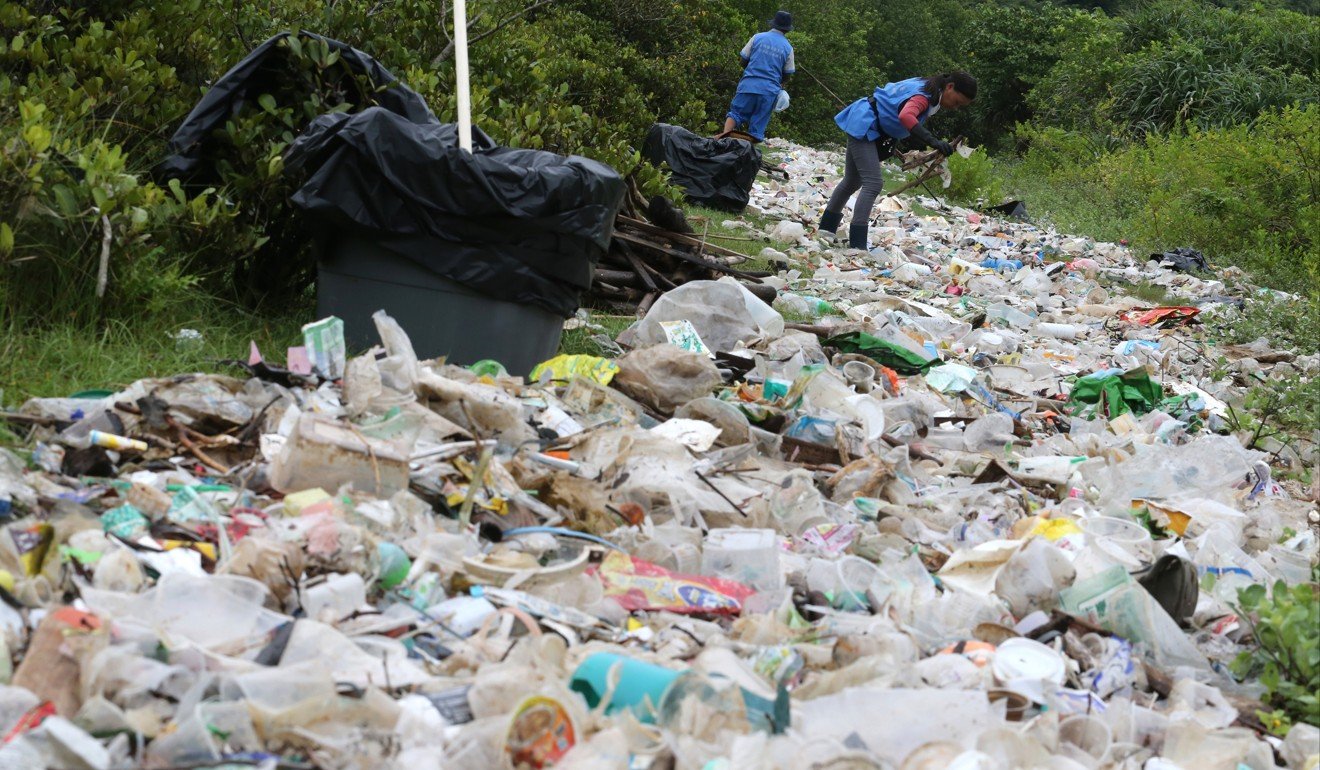
Hong Kong sixth out of 13 in Asia-Pacific green rankings but the city could do better, particularly in cutting waste
- The rankings, compiled by ValueChampion, laud Hong Kong’s public transport and water safety, but city was worst offender for generating waste
- A new initiative by NGO World Green Organisation aims to encourage Hongkongers to change their habits and recycle more
Hong Kong is the sixth most environmentally friendly place in the Asia-Pacific region, lagging behind some of its neighbours, according to an international consumer research group.
ValueChampion compiled its findings based on publicly available data on 13 cities and countries in the region to determine which places generate less pollution and plastic waste, while adopting renewable energy technologies, preserving green space and encouraging public transport.
The city came behind Japan, Singapore, Australia, South Korea and New Zealand in the rankings.
Senior analyst William Hofmann and his team named Japan the greenest country in the Asia-Pacific region for its reliable public transport, clean water and efficient energy industry, while Singapore came in second for having the most efficient electric grid, low water and air pollution levels and efficient energy and transport systems.
Although Hong Kong fared well in terms of encouraging public transport, greenhouse gas emissions, the availability of green space and water safety, Hofmann found that Hong Kong produces the most plastic waste per capita – around 400g every day. “This hurt its overall rank,” he says.

But there is good news for Hongkongers who never seem to be able to find a plastic recycling bin: a local green group is bringing recycling to your doorstep.
The World Green Organisation (WGO), a non-governmental organisation, has just launched a campaign in the city to encourage Hongkongers to recycle polyethylene terephthalate (PET) bottles, which are commonly used to package beverages.
In 2017, Hong Kong dumped more than 10,700 tonnes of municipal solid waste at landfills every day. One-fifth of it was plastic waste, and 137 tonnes were PET bottles.
64 million tissues end up in landfills each day just from dining
The WGO says this is equivalent to sending 5.48 million plastic bottles to landfill every day.
“It’s shocking,” says CEO Dr William Yu Yuen-ping. “It’s as if every person in Hong Kong discarded one plastic bottle every day.”
In a survey, the WGO found that 76 per cent of the 800 respondents would not recycle plastic bottles if they were unable to locate a recycling bin. Its campaign, which will run until November, comprises recycling roadshows at schools, housing estates, shopping malls and community centres in Yau Ma Tei, Kwai Tsing, Ma On Shan and Aberdeen.

These events aim to educate Hongkongers about clean recycling, and will also collect used PET bottles. In return, citizens will get a HK$0.20 (US$0.025) rebate on every bottle they recycle.
Elaine Lam, a second-year Shue Yan University student who enjoys drinking bottled fruit juice, says she knows she should clean the bottles before recycling, but does not because she finds it inconvenient – “I just put them straight into the recycling bin on the ground floor of my residential block.”
Where to donate and recycle all kinds of stuff in Hong Kong
Yu hopes the WGO’s roving recycling station will help the public realise the importance of separating caps and labels from bottles, which are made from different types of plastics, as well as cleaning recyclables to reduce contamination such as food residue, which can affect the recycling process – an overly contaminated batch of recyclables might be sent straight to landfill.
“I hope bringing recycling to people’s doorsteps will encourage them to learn how to recycle plastic bottles and make it a habit,” Yu says.

But accountant Oliver Hong suggests Hongkongers should take their cue from the country that topped Hofmann’s list. “The Japanese would take their recyclables home for cleaning and sorting even when there are no bins around,” Hong says, speaking from his experiences as a tourist in Japan. “It may not be easy for Hongkongers to change, so this is where education comes in.”
Green group tells Vitasoy to take responsibility for drinks cartons in landfill
Yu believes that, for now the best solution to Hong Kong’s waste problem is the implementation of a waste charging scheme, which is expected to kick in late next year after a 15-year delay. “When you put a price on waste, you might start looking at it differently, and think twice before throwing away something that is recyclable.”

